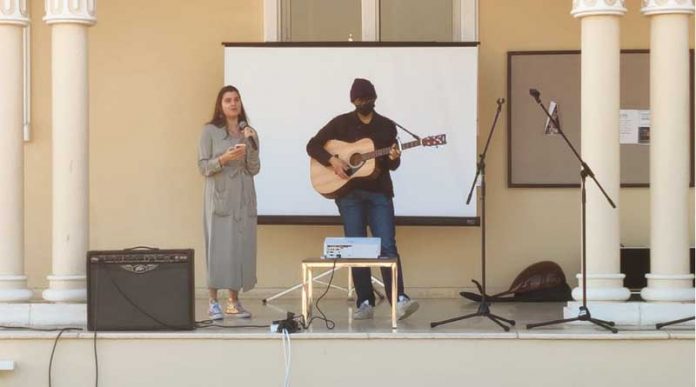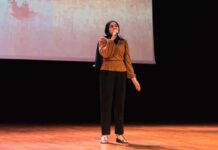Dubai’s vibrant live music scene was shaken after the COVID-19 pandemic stopped all live music performances in the UAE, but not getting gigs is nothing new for a musician.
By Abdul muiz Nauman
On a peaceful afternoon in the early days of March 2020, musician and audio engineering student Ananya Murali was sitting on her bed at home and singing.
She and her fellow musician and friend, Aarti Venkat, were rehearsing for one of the largest gigs they were going to have. It was the first time in their lives that they had been invited to perform somewhere, and actually get paid for it.
Murali, a long-time musician and performer of both Carnatic and pop music in Dubai, had been waiting for a big break like this, ever since she had started her musical career, several years ago.
As Murali and Venkat sat, sang, and rehearsed, they both simultaneously received a strongly worded email explaining that not only had their performance been cancelled, but all live music performances throughout the country had been cancelled indefinitely, due to the spread of the COVID-19 pandemic.
“Our jaws fell to the floor, and we couldn’t believe what we were reading,” Murali said.
The COVID-19 pandemic came like a bull in a china shop. Smashing, crashing, and destroying everything in its path. Consequently, causing people all over the world, to lose their sense of safety. A group of people who depend on large crowds and open spaces for money and their livelihood were left without audiences and effectively, no money.
In an already dog-eat-dog world of live musical performances, musicians in Dubai could not even find any place to sit down and perform for live audiences, because everything was closed.
Dubai-based rapper, Ali Adnan Raza, known as SEIK, found some success as a rapper after he released his first single titled “$TAXXX” on SoundCloud, a free online platform for musicians to release songs.
“It wasn’t something I was planning on doing, it just sorta happened. [$TAXXX] caught a few people’s ears and from there it kinda snowballed,” he said.
Prior to the start of the pandemic, Raza had done a few live music gigs as well as a couple of open mics where he rapped his song “$TAXXX.”
Lockdown had been tough on him as he could no longer do something he loved, rapping for his friends and family on open mic nights. However, he said that his musicianship took an unexpected turn during the lockdown.
He talked in detail about the role that social media played in offering a platform for people to have online gigs. Instagram live allowed for several musicians to jam and have virtual gigs where they or collective bands would join each other’s Instagram lives to hold a small concert.
Reza added that with the prevalence of online platforms, presenting music became easier as an online audience was able to tune into gigs online through their phones, laptops or tablets.
Murali also commented on her experience with lockdown, saying that “lots of people used lockdown to enhance their skills. And I’m not the only one. Almost everyone began embracing their hobbies once they were forced to stay at home.”
Murali, who is a seasoned performer, said that the COVID-19 pandemic could not stop her from making music and that she actually used lockdown to her advantage by further developing her musicianship. She spent several hours a week building her skillset, learning new songs and adding to her repertoire.
Murali also used the features on Instagram and Facebook to find a virtual audience to play music for.
Both Murali and Reza agreed that lockdown was a tough time, especially for musicians. But being alone in that headspace forced people to find a platform to create.
Although Reza said he will most likely not make a comeback to the music scene in Dubai, he did say, “No matter what happens, the cogs will keep on turning!”
This shows that even in the toughest of times, artists who create for the sole purpose of art will never stop. There is something innately human about the way we make art, and no one can stop us.
As the great musician Ray Charles once said, “Music is powerful. As people listen to it, they can be affected. They respond.”


















